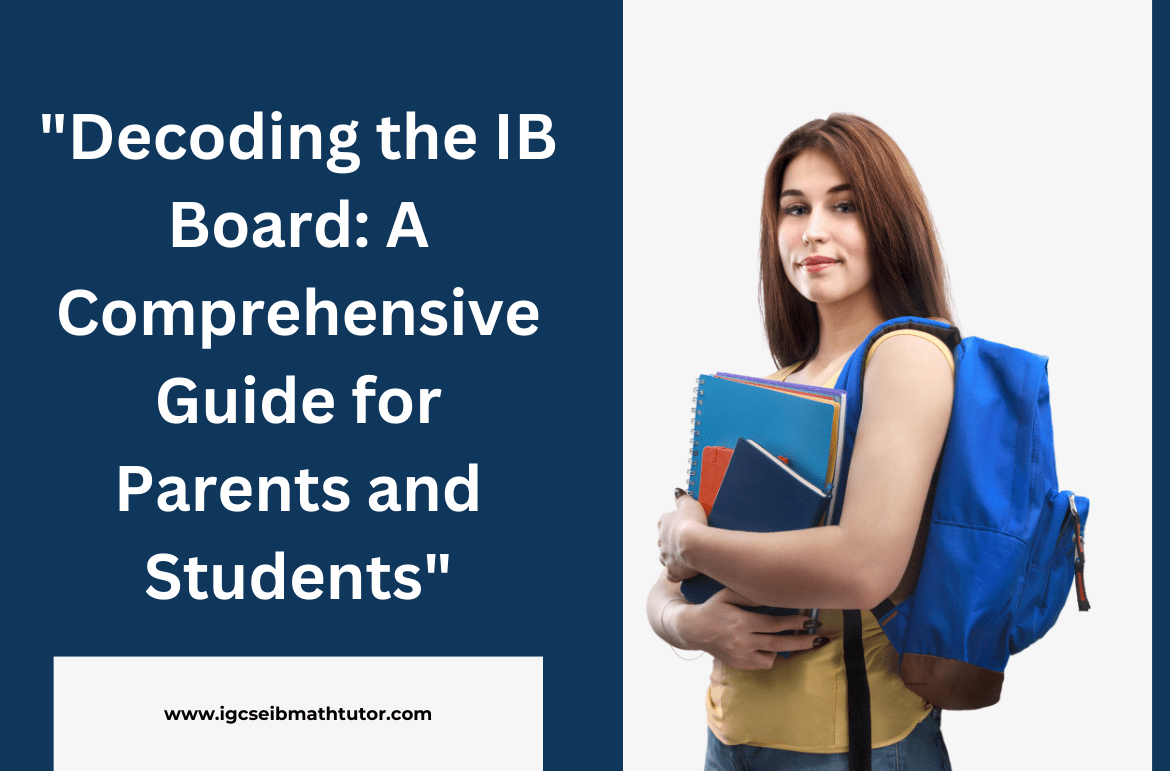
Decoding the IB Board: A Comprehensive Guide for Parents and Students
Introduction
Navigating the International Baccalaureate (IB) educational framework can be a challenging journey for both students and their parents. Often, the intricacies of the IB Board’s structure, requirements, and expectations can seem daunting. This comprehensive guide aims to demystify the IB Board, offering clarity and insight into what makes this program unique and how to successfully navigate it.
Understanding the IB Framework
The Philosophy Behind IB
The IB program is designed to develop inquiring, knowledgeable, and caring young people who are motivated to succeed. It aims not only at academic excellence but also at fostering global citizenship and an empathetic worldview.
Structure of the IB Program
- Primary Years Programme (PYP): Designed for students aged 3 to 12, this program focuses on the development of the whole child as an inquirer, both inside and classroom.
- Middle Years Programme (MYP): For students aged 11 to 16, this framework encourages students to make practical connections between their studies and the real world.
- Diploma Programme (DP) and Career-related Programme (CP): These programs are for students aged 16 to 19 and are aimed at preparing students for higher education and beyond.
The Curriculum and Assessment
Core Elements
- Theory of Knowledge (TOK): Encourages students to reflect on the nature of knowledge and how we know what we claim to know.
- Extended Essay (EE): An independent, self-directed piece of research, culminating in a 4,000-word paper.
- Creativity, Activity, Service (CAS): Aims to develop students’ awareness and appreciation of life outside the academic arena.
Subjects
The IB curriculum is divided into six subject groups, and students are required to take courses from each group. This comprehensive approach ensures a well-rounded education.
The Role of Parents
Parents play a crucial role in supporting their children through the IB journey. This involves understanding the program’s demands, helping with time management, and providing emotional support.
Tips for Students
- Stay Organized: Keep track of deadlines, assignments, and exams.
- Balance Your Workload: Balance academic work with CAS activities.
- Utilize Resources: Take advantage of school resources like teachers, libraries, and counseling services.
- Stay Curious: Engage actively in your learning and explore beyond the curriculum.
Challenges and Rewards
Challenges
- Academic Rigor: The IB program is demanding and requires a high level of dedication.
- Time Management: Balancing coursework, extracurricular activities, and CAS can be challenging.
Rewards
- Global Recognition: IB qualifications are recognized and respected by universities and employers worldwide.
- Holistic Development: The program nurtures intellectual, personal, emotional, and social skills.
Conclusion
The IB Board offers a unique and enriching educational experience that prepares students for academic and personal success. Understanding the program’s structure, curriculum, and expectations is key to making the most of this experience. For both parents and students, the journey through the IB Board can be challenging but ultimately rewarding, equipping students with the skills, knowledge, and mindset to thrive in a rapidly changing world.
IB Math Tutor, IB MYP Math tutor, IBDP Maths tutor ,







